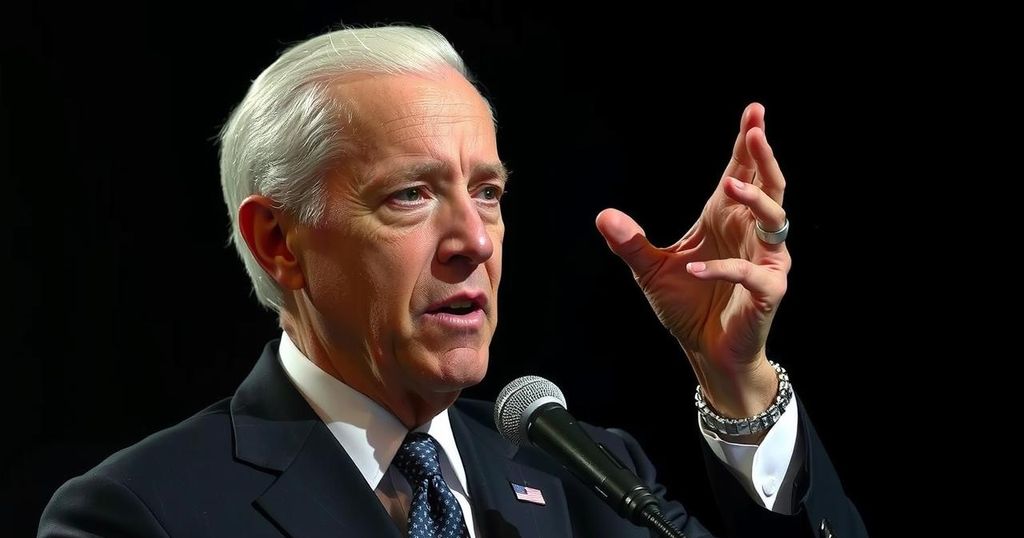Biden’s Silence Post-2024 Election Raises Concerns About Legacy and Leadership

President Joe Biden has remained largely silent since the Democrats’ substantial defeat in the 2024 elections, offering few reflections on the outcome. His limited public engagement raises concerns about how he will influence both his legacy and the political future, as voices like David Axelrod highlight the necessity for new leadership. The President’s silence is notable during a critical moment in international relations, further complicating perceptions of his role in shaping future narratives.
Since the Democrats’ defeat in the 2024 elections, President Joe Biden has notably refrained from publicly addressing the implications of this outcome. Despite previously cautioning against a Donald Trump victory for the future of American democracy, he has not provided a thorough reflection on the reasons behind the Democratic Party’s significant losses across the board. His only public statement post-election was a brief address in the Rose Garden, urging unity and comity among Americans. Following this speech, he has maintained a low profile, particularly during a recent diplomatic visit to South America, where he emphasized climate relations and had minimal engagement with the media.
Biden’s quietness amplifies the perception of a political shift in the United States, with some commentators suggesting that he is ceding the narrative to a new generation of leaders. Notably, David Axelrod remarked, “His race is over. His day is done.” While historians like Edward Frantz relate Biden’s current position to a historical context, likening it to former President Jimmy Carter’s insignificance towards the end of his term, they also note the importance of Biden’s active involvement to shape his legacy.
Despite his public silence, Biden’s aides assure that he is deliberately respecting electoral traditions and processing the outcome. His focus on ensuring a calm transition reflects the chaotic events following the last election. However, critics emphasize the risks of remaining silent on pressing issues, potentially alienating his influence in both domestic and international arenas. The President’s recent interactions during his international trip further signal his hesitance, as even crucial decisions regarding Ukraine were left to other leaders to articulate.
Moreover, during Biden’s meeting with Xi Jinping, the Chinese leader seemed to assert a message towards Trump, hinting at a readiness for cooperation should a new administration take shape in the U.S. Biden’s lack of engagement with questions from reporters reflects a broader disconnect, suggesting his reluctance to unpack the implications of the recent electoral results and solidify his stance moving forward.
As Biden navigates this pivotal moment, his silence draws scrutiny not just on his immediate reflexes but also on his capacity to influence the trajectory of both the Democratic party and global relations amidst changing leadership dynamics.
This article discusses President Joe Biden’s post-election silence following the Democratic losses in the 2024 elections. After previously advocating for the importance of the election’s outcome against Donald Trump’s potential return to power, Biden has ceased to engage vocally with the pressing political realities that have emerged. The analysis includes perspectives from aides, historians, and political commentators who reflect on the implications of Biden’s quietness in shaping both his legacy and the Democratic Party’s future dynamics in a transitioned political landscape.
In conclusion, Biden’s silence following the Democratic losses in the 2024 elections raises questions about his influence and future engagement as a leader. While he stresses the importance of an orderly transition, some analysts argue that a more proactive stance would help shape his legacy and respond to the pressing ramifications of the election results. As the political climate evolves, Biden’s ability to articulate a clear strategy going forward may prove crucial in redefining his presidency and the direction of the Democratic Party.
Original Source: www.seattletimes.com







